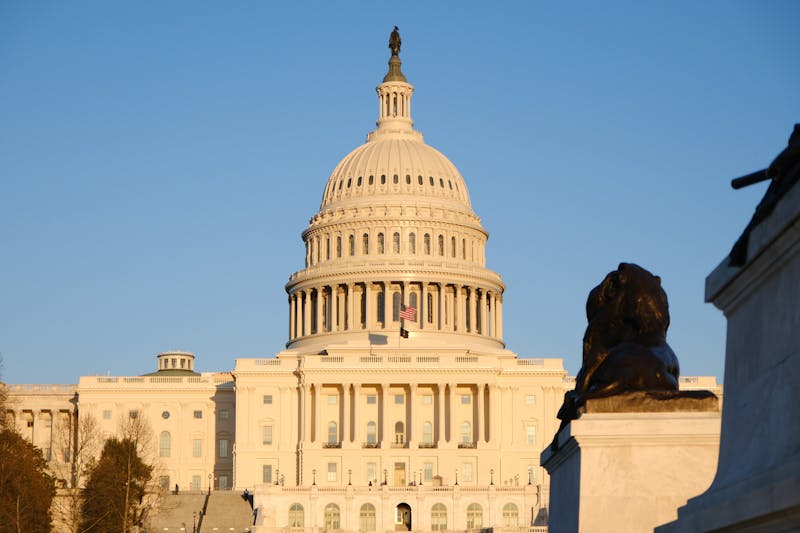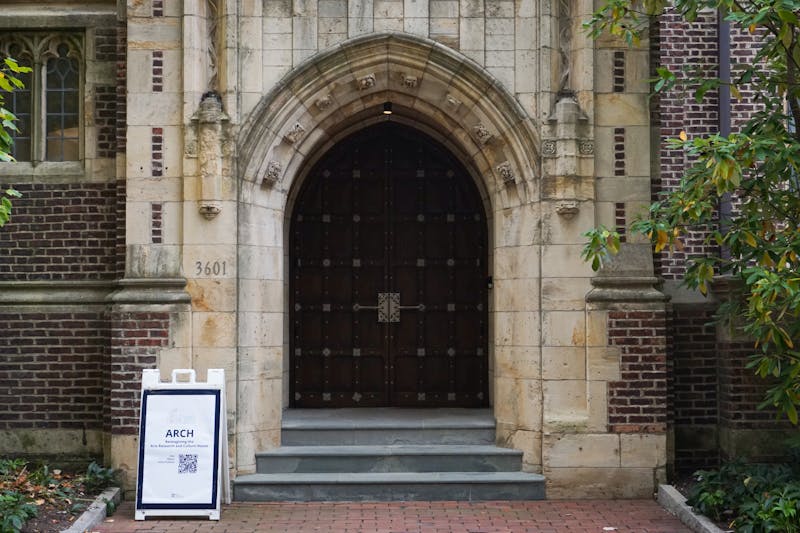
Former Penn President Liz Magill addressed the viral moment from her congressional testimony and reflected on the challenges university leaders have been facing over the past year in her first publicly advertised event since her resignation.
The panel, titled “Institutional Speech & Administrative Challenges,” took place at the University of North Carolina on Friday and was co-sponsored by UNC’s Center for Media Law and Policy and the UNC School of Law. Magill discussed topics including institutional neutrality, institutional statements, and university responses to external political pressures.
A source familiar with Magill’s schedule told The Daily Pennsylvanian that the former Penn president has participated in events at Stanford Law School and Cornell Law School since her resignation in December 2023. However, the UNC panel — which was also live streamed on YouTube — was her first appearance to be publicly advertised and broadcasted.
Magill declined the DP’s request for comment.
UNC professor Mary-Rose Papandrea moderated the panel, which also featured UNC System President Peter Hans, George Washington University professor Christopher Bracey, and Yale Law School professor Keith Whittington.
Papandrea asked Magill, who resigned after a widely publicized hearing at the House Committee on Education and the Workforce last December, to reflect on her testimony.
Magill looked back on her interaction with United States Rep. Elise Stefanik (R-N.Y.), where Stefanik asked if calling for the genocide of Jewish people violated Penn’s code of conduct. Magill’s response at the time, which resulted in a viral clip, was that the question was a “context-dependent decision.”
“I am empathetic and could definitely understand and have stepped in the shoes of someone who hears something like that on our campus,” Magill said at the panel. “It was a mistake not to do that, and I don’t think that’s who I am.”
The panel opened with a discussion of the increasingly popular decision among universities, including Penn, to move towards or adopt institutional neutrality policies. Magill attributed the increase in neutrality statements to the “trial by fire” caused by the Oct. 7, 2023 Hamas attacks on Israel, which were followed by significant activism and pushback from both pro-Palestinian and pro-Israeli students, faculty, and alumni.
“[These events] taught a particular lesson that led many institutions to adopt institutional neutrality positions,” Magill added.
Magill also reflected on her experiences as Penn president during this time, including “unrelenting pressure” on university leaders to make statements on divisive issues, which she said mirrors expectations of leaders across all industries. Magill stated that this, combined with the deep divisions between students, faculty, and alumni on issues like the ongoing Israel-Hamas war, made it extremely difficult to make statements that satisfied all parties.
“The divisions were so deep that very few of those statements served [the] purpose the institutions hoped they would serve,” Magill said.
Magill explained that despite these challenges, her decisions were made with the best interests of the University in mind, even while recognizing that those decisions sometimes upset donors and alumni.
“My job was to listen and do what I thought was the best for the long-term interest of the University, so sometimes that means saying ‘this is how we’re handling this, we’re sorry if that makes you stop supporting us’,” Magill said.
Magill also discussed the increased political pressure on universities. At the beginning of 2024, multiple U.S. House committees launched investigations into Penn over alleged “ongoing and pervasive acts of antisemitic harassment and intimidation” on campus. The Committee on Education and the Workforce requested a plethora of documents from the University in January, and released the findings from its yearlong investigation of several higher education institutions including Penn in a 325-page report on Oct. 31.
Magill recognized the difficulties of defending large and diverse universities in the face of government involvement and “attacks on universities,” but said that universities and their leaders needed to do a better job communicating their missions and values.
“Universities need to be better at explaining our noble missions of knowledge generation and dissemination, and what [that] does for individuals and collective society,” Magill said.
The Daily Pennsylvanian is an independent, student-run newspaper. Please consider making a donation to support the coverage that shapes the University. Your generosity ensures a future of strong journalism at Penn.
Donate











